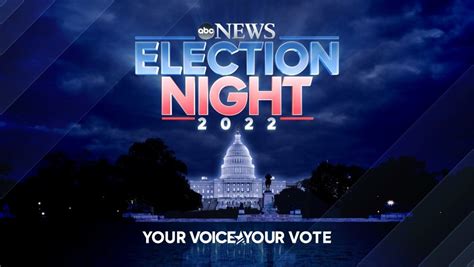Understanding the Midterm Elections

Midterm elections, held in the United States every two years, play a pivotal role in the nation’s political landscape. These elections serve as a referendum on the incumbent president and determine the balance of power in Congress, influencing the direction of governance for the next two years.
Importance of Midterm Elections
-
Power Shift: The outcome of midterm elections can significantly alter the balance of power in Congress, potentially giving the opposition party control over the House of Representatives and/or the Senate. This power shift can have a profound impact on the president’s ability to enact their legislative agenda.
-
Public Sentiment Gauge: Midterm elections provide a glimpse into public sentiment regarding the current administration and its policies. The results can indicate widespread support or dissatisfaction, guiding the president and policymakers in adjusting their strategies.
-
Policy Impact: The party that gains control of Congress can exercise significant influence over policymaking. They have the power to block or advance legislation, shape the federal budget, and conduct oversight of the executive branch.
-
Presidential Influence: While the president does not face reelection during midterm elections, the results can affect their ability to govern and their political standing. A strong showing by the president’s party can provide a boost to their agenda, while a defeat can create obstacles.
Key Statistics
- In the 2022 midterm elections, Republicans gained control of the House of Representatives, while Democrats retained the Senate.
- According to the Pew Research Center, voter turnout in midterm elections is typically lower than in presidential election years.
- The 2022 midterm elections saw a record number of women and candidates of color running for office.
- Incumbent representatives have a higher chance of reelection than challengers, with an average win rate of over 80%.
Common Mistakes to Avoid
-
Ignoring Independent Voters: Midterm elections often attract a significant number of independent voters who are not strong partisans. Candidates who fail to appeal to this bloc can limit their chances of success.
-
Neglecting Local Issues: Voters in midterm elections are often more concerned with local issues than national ones. Candidates should prioritize addressing the concerns of their constituents to increase their chances of election.
-
Underestimating the Importance of Campaign Finance: Campaign finance plays a crucial role in midterm elections, as candidates require substantial funding for advertising, polling, and staff. Underestimating the importance of fundraising can lead to financial constraints and reduced competitiveness.
Step-by-Step Approach to Understanding Midterm Elections
-
Research Candidates and Platforms: Familiarize yourself with the candidates running in your district and their policy positions.
-
Understand the Electoral Process: Learn about the voting process in your state and the different ways to cast your ballot.
-
Engage in Political Discourse: Participate in discussions and debates about political issues to form informed opinions.
-
Exercise Your Right to Vote: Make it a priority to cast your vote in the midterm elections to have a voice in shaping the future of the country.
FAQs
-
What is an off-year election?
Off-year elections are elections held in years other than presidential election years, including midterm elections. -
Can midterm elections change the president’s agenda?
Yes, the outcome of midterm elections can significantly influence the president’s ability to enact their legislative agenda. -
What is a gerrymandered district?
A gerrymandered district is an electoral district whose boundaries have been drawn to give one political party an unfair advantage over others. -
How does voter suppression affect midterm elections?
Voter suppression efforts, such as restrictive voter ID laws and reduced polling locations, can make it more difficult for certain groups of people to vote, impacting midterm election outcomes. -
What is the incumbency advantage?
Incumbent representatives have an advantage over challengers in midterm elections due to name recognition, constituent support, and established campaign infrastructure. -
How can I register to vote for the midterm elections?
Voter registration requirements vary by state, but you can typically register online, by mail, or in person.
Conclusions
Midterm elections hold immense power in shaping the political landscape of the United States. They provide a barometer of public sentiment, determine the balance of power in Congress, and influence policymaking for the next two years. Understanding the significance of midterm elections and making an informed decision on Election Day is crucial for ensuring the health and vitality of the nation’s democratic process.
